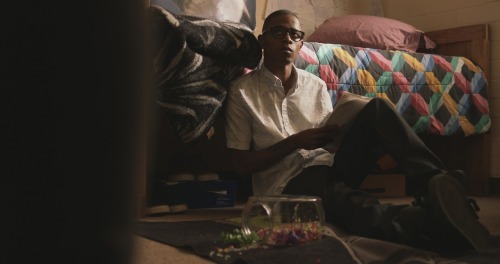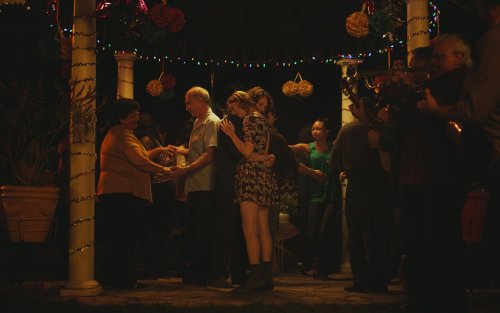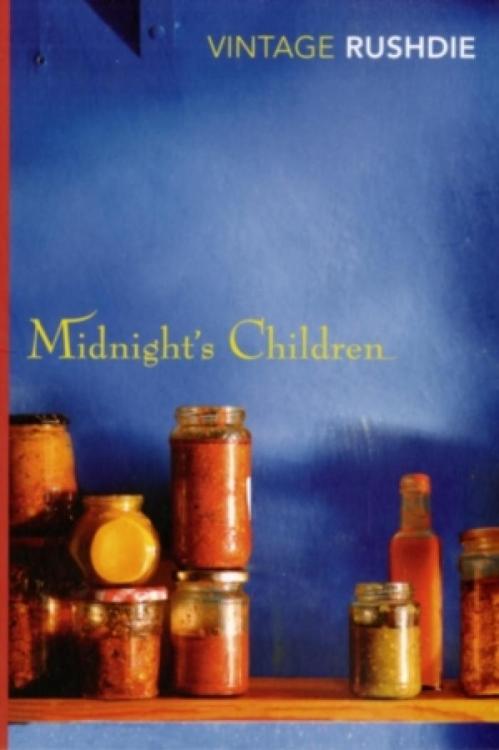#salman rushdie
‘Home’ has become such a scattered, damaged, various concept in our present travails. There is so much to yearn for. There are so few rainbows anymore.
— Salman Rushdie
Post link
I was born in the city of Bombay ….. once upon a time.
- Midnight’s Children (1980), S. Rushdie
Post link
Now and then we get asked for advice on creating a book collection. Most of our collectors know exactly what they want to collect and how to go about it, but for new collectors it can be a difficult task.
One of the biggest sticking points, particularly over the last decade or so, is concern about getting the key titles. We were recently offered a collection of Ian Rankin books, it was a nice collection, mostly in decent shape, but lacked the key title, Knots and Crosses. The collector was looking to sell because he couldn’t justify spending £1000 or so on a nice copy, and an ex-library copy just didn’t seem right. So he planned on selling the rest of the set to finance a purchase of Knots and Crosses and taking it from there.
This is something we see increasingly; the price of collection highlights has increase hugely over the last couple of decades as the true scarcity of these items is better known through improved information access and the demand is similarly increased as their prices become more visible. We’re going to talk below about various strategies to deal with this.
Accept that Goalposts Move
Now, it’s important to note that the vast majority of collectors don’t have a goal in mind when collecting. At first, yes, most do, but as that collection grows, the goalposts move - nearly always. Sometimes this is manifest through a sell-off, where the collection is sold to finance a new one. Sometimes the completed collection becomes part of a collection and other interests take precedence (I’ve got a full set of Heinlein’sUK hardbacks, I’m going to get the US hardbacks now or I’ve got all BernardCornwell’sbooks, I might move onto Patrick O’Brian now). Most often though, the side collections and diversions take seed much earlier on, particularly when opportunity offers.
The best thing about this though, is that this is good and almost vital.
- Accepting this leads to accepting the fact that collecting is about the journey not the result.
- Accepting this lessens the impact of completion; the collection will never be complete so that missing volume isn’t asvital (tenuous point in some cases)
- Accepting this vastly improves the chances of finding books for the collection. The joy is in the chase of course not the capture.
How to Pick a Starting Point
A lot of people specialise, we have collectors who just buy Stephen King proofs, others who just buy Nebula award winners. These kind of collectors have often been through the process of deciding what they want and are acceptant of the limitations and costs. But if you don’t have a specific definition, or even if you do, our recommendations are as follows.
Build on your Interests
IfHaruki Murakamiis your favourite author, then perhaps that would be a good place to start. Write his name on a piece of paper, but nothing further. If you like modernism, write that on the piece of paper. Books with high production values, write it on the paper. Books you’ve read, write it down. The Vietnam War, write it down. Significant moments in the history of literature, write it down.
Perhaps your interests aren’t as clearly defined and you’re interested in curious inscriptions, true rarities or forgotten books. Still, write it down, but take a moment to think how those rules are defined. Books with curious inscriptions - does the inscription have to be by the author? What defines curious? True rarities - What defines a true rarity? No copies on the market, unrecorded in bibliographies? Forgotten books - Are these books that have been out of print for fifty years? Perhaps they don’t have an entry in Wikipedia? Perhaps there’s no reference online? Once you’ve produced the definition, write it down.
Maybe you want to just collection books that take your fancy - then you don’t need this list. You’re happy, your horizon is wide and distant. Guard you secret jealously.
Think About your Budget
This is one of the most important things to consider. Try not to think about what you might be able to afford in the future (it will never be enough), think about how much and how often you want to be able to able to invest (invest in the enjoyment not the financial return). Here at Hyraxia Books we have collectors who know the books they want and will pay for them over a number of months. That’s fine, and they’ve usually accepted that that means fewer purchases. Others don’t like to do that, they enjoy the buzz of the chase so would rather spend £100 one week, £50 the next, £250 a month later. They might spend £1000 over a year, and think that they could’ve got one really nice book, but generally it’s more about the chase.
For many, this is just an as-and-when - you know how much you’re willing (or able) to spend on your collection. It’s just useful sometimes to take a step back and realise that many of the expensive books aren’t out of your reach, it might just take a bit of planning.
So with that in mind, pick a handful of prices, or better still, a range of prices you’re willing to pay. It might be wide £25-£2000, or it you might have thought that you’d like to buy a book every fortnight, so your range is £50-£100. Alternatively, you might have an idea from shopping the kind of prices that you consider: £500, £750, £2000, £1500. Write them down on your paper. The range isn’t as vital as understanding budget constraints, but it helps keep your collection in check. If you’re looking around the £500 mark, £10 books might lessen the collection, and similarly, if you limit yourself to £10, then the £500 book might tower over all the others.
Vitally though, the prices are secondary to the collection. This is important. If you want to get every book written by John Steinbeck then you still might need to plan, but your range should reflect the requirements of the definition.
Think About The Books
So, on your paper you have your budget and your interests. You have to now decide how they are going to reconcile. So if you’re interest is George Orwell and your budget is £500-£2000, you are not going to get a full set of first editions in dustjackets. If your interest is Magic Realism, and your budget is £25-£250, then you’re not going to get a first Argentinian edition of 100 Years of Solitude. So how do you reconcile that?
Let’s be practical here. If-you-try-hard-you-can-achieve-anything doesn’t apply. The majority of people will to spend a couple of hundred on a book every now and then will never spend a few thousand. So to reconcile you have to add a little further detail to your piece of paper. So, if you wrote T.S. Eliot as your interest, and your budget doesn’t allow for the first edition of The Waste Land, then you need to think of alternatives, for example:
- Later editions
- First editions from other countries
- Limited editions
- Signed copies
- Copies in lesser condition
- Interesting copies
- Magazine printings
Write those things below the list, and now those editions apply to T.S. Eliot. You now don’t have a problem, well, you do, you still can’t have that first edition of the Waste Land, but even if you could, you might not be able to have a signed First Edition, and even then, you ain’t getting the manuscript.
Of course, this is entirely unacceptable for some, perhaps even for most. Later editions, second impressions, jacketless copies are simply unacceptable to some. In that case, you need to think about payment plans or be incredibly diligent in your searches.
Think About the Scope
So, you’ve written down your list of editions to satisfy your interest in Iain Banks, but your conclusion is that you wouldn’t be happy with a US first edition of The Wasp Factory where the others are all UK first editions, and your wife or husband won’t let you spend £50 a month for the next six months. This is when you start to widen the scope. If you collect all the other books, but are lacking The Wasp Factory, then you’ll be sitting with an incomplete collection until finances improve, a bargain comes along or the spouse is silenced. So widen the scope a little from the off. Perhaps it’ll include Banks’ science ficiton novels, perhaps it’ll include proofs, or interesting signed copies. Maybe you’ll increase the scope to include other Scottish writers, or similar books / authors you’re interested in. Having a larger set of books that would fit in your collection means that you’ll always be further from completion, which sounds bad, but it means that you can always improve your collection and you’ll be happier with it.
Our own personal collection approaches the scope from two sides to try and approximate a good plan. It’s essentially a cross-section of Speculative Fiction. I love Haruki Murakami, I’ve had all his first editions, all his limited editions, all his deluxe editions. I got a copy of Sleep, one of 45 copies only to read on the colophon that there 15 additional reserved copies that I was very unlikely to get hold of. It’s also a £3000-£4000 book. These two facts told me that I would not be in a position to complete a Murakamicollection, not for a while anyway. So I would be looking at an incomplete collection, but not incomplete in a good way, incomplete in an irritating way. So I sold some of it as our first catalogue.
I still like Murakamithough, and he still needs a place in our collection. So we restricted ourselves to four of his books. And as our collection is a cross-section of Speculative Fiction, they have to be speculative. So for us personally, four is key. I don’t know why four, it just seemed right for us. So I got my piece of paper and wrote Speculative Fiction on it (actually a spreadsheet). Then I created a dozen boxes with four entries. The first box said Murakamiin it, the second said Robin Hobb, the third said Magic Realism. At that point, the collection had blown wide open. The cross-section wasn’t just authors any more, it was genres and categories. The next box was Edwardian Weird Tales. Now we were getting specific, but to me the definition of our collection was coming into focus; it was a description of speculative fiction right across the board, from the earliest stories to the most recent. Each area of the genre was to be represented by either four key or interesting titles, authors or oeuvres. Once the oeuvres were included the scope was enormous. I wrote Greek Myths in one box. Now the scope was ridiculous, but completion was in sight, and could even be surpassed. Take one section for example, Cyberpunk. Not a huge fan of Cyberpunk, but I like it in our collection. I need to pick four books, not even key titles; there are more than four key titles so it’s just a representative selection. We added a signed copy of Neuromancer, UK first edition. The key title, as good as it gets (actually not, a proof would be nicer, or a copy inscribed to Bruce Sterling…manuscript?). Book number two hasn’t been bought yet or decided. It could be the Nov 1983 issue of Amazing Science Fiction Stories (though that doesn’t fit with our budget requirements). Snow Crash? Yep, it has to be Snowcrash, maybe I won’t get the Bantam first edition at the price I want, so maybe we’ll go for the Subterranean Press edition from a couple of years ago. The point is, the books that could make it into our collection are many more than there is room for. And maybe in a few years I’ll upgrade that Sub Press edition, maybe I’ll stretch it to five books.
A final word on scope, is that as the boundaries of your definition become more and more vague, your collecting becomes much more fun. Start to include ephemera, prints, meta-works, anthologies etc.
Think About Condition
You will hear it from everyone condition, condition, condition. It’s the collector’s equivalent of location, location, location. I’m sure if we had some tedious, uninspired TV show that’s what it would be called. But as anyone who’s moved house knows, location is just one factor. Condition’s important, always go for the best that you can afford…no always go for the best that works within your budget. Yes, a fine copy will increase in value a little quicker than a very good copy, and may be easier to sell. But I wouldn’t worry too much if it’s so restrictive that it affects the balance of your collection and collecting. Does that copy of Dr. No have to be fine? Are you happy spending a little less and getting a copy of Thunderballas well?
Learn When to Say No
Even if your funds are limitless, and some essentially are, you still just don’t want to amass. Amassing dilutes the collection, it lessens the highlights and achievements. If you find yourself in the position of buying 200 books from a friend who has lost interest in collecting books and has moved on to coins (I shudder at the thought). Then buy them, treat yourself to those you really like, those that fit in with your definition or those that offer a new branch that you really like. Get rid of the others. Sell them to a dealer, take them to auction, or just put them in a box in the loft.
If you don’t, you’ll end up losing sight of the (ever changing) definition. It will lessen the impact of your own collection, particularly if some of those books surpass your treasures in terms of value and / or prestige. Of course, like I say above, this might be an opportunity to expand your definition and that’s fine, but you need to think it through.
Collections Can Shrink
Book collecting is a long game, it takes years, a lifetime, several lifetimes. Your tastes will change, as will your budget, as will the market. Keep this in mind because some of your treasures will lose their appeal, some will lose their value. There’s nothing wrong with trimming off the fat now and then. Similarly, if you have a copy that’s a little poorer than you’d like, maybe missing a jacket or even an ex-library copy. Maybe you loved Colin Dexter when you were forty and it was on the TV. When the time is right, sell it. You might make a loss, you might make a profit.
The important thing is that you don’t let books stick around when they no longer fit the definition, or if they just don’t suit. I do this as a dealer, I usually price faded copies quite low because it’s my bug bear. They stare at me on the shelves - they have to go.
Don’t take this too lightly though. If you have a nice Brighton Rock in dust jacket, that just no longer appeals to you, bear in mind that it might take a couple of decades to get another copy.
Ignore the Above
Ok, that works for me, it works for a lot of our collectors. But for many people, increasing the scope, or removing edition restrictions totally undermines their collection. In that case, keep your definition tight, buy just exactly what fits that definition and ignore what I’ve said.
A Word About Investments
If you look at the selling prices of many books from 20 years ago, and compare to now, you will immediately be aware of how wealthy you could’ve been. Similarly, if you look at the results of the last 20 FA Cup Finals, you will be immediately aware of how wealthy you could’ve been. Don’t collect with a view to getting a decent return. It might happen, it might not, some books will go up in value, some will go down. Collect for the chase, even if that chase is for a bargain.
Having said that, do bear in mind that the vast majority of books will be worth much less than retail price in the future. Salman Rushdie’sFury will never be worth more than £10-£20. Even if his next book is better than the Divine Comedy,Fury, will always be a cheap books. There are thousands of them. Having this in your collection might be necessary, but understand it’s value - it’s not a financial investment, it’s part of a collection.
Midnight’s Children on the other hand, the Booker of Bookers. It’s already expensive, but surely it’ll go up in value? Right? Maybe. The Booker prize might cease in 2025, and fade into obscurity. But it’s still a good book, a great book, it’ll always be remembered, right? Maybe. Lots of great books have been forgotten, lots of great books are cheap.
If you’re concerned about a return on investment, take into account the scarcity, market values, copies on the market, time on the market, quality of the writing, significance of the author to literature in general, significance of the book specifically, anything unique?
Conclusion
So, what’s the conclusion? Well, this isn’t a cover-all type of situation. It’s more of a way of mitigating the concern that you’ll never get exactly what you want. Every collection is different, every collector has their own method and motivation and most collectors probably accept this already. Sometimes it can be fun to relax your definition a little, or to have a think about approaching your collection from a different angle. For us personally, we started many moons ago with the notion of being completists; it was never as fun as it is now.

Salman Rushdie: Midnight’s Children (1981)
This image was compiled by someone who has no understanding of Islam. I will address each underlined stupid separately.
- Salman Rushdie
First of all, no one can “excommunicate” anyone in Islam. The idea is ludicrous. There is no central power structure or hierarchy. Everything is between you and your god. A prominent Muslim cleric can say “this man is not a Muslim” and it means nothing.
Moreover, even if you could “excommunicate” someone, most Muslims understand that it wouldn’t be a “fatwa”. Muslims understand a fatwa to be the non-binding judgement of a legal expert in specific matters. Have a look at some fatwas on islamicweb.net to get a representative cross-section. You’ll notice none of them come anywhere close to condoning any sort of violence, and every single one of them ends with a sheepish, we-could-be-wrong-about-this, “Allah knows best”.
In this view, then, what the then Ayatollah Khomeini pronounced on Salman Rushdie was not a fatwa; it was a death sentence. It probably doesn’t make a difference from Rushdie’s point of view but it demonstrates the lack of basic research that went into this image.
Because there is no hierarchy in Islam, the Ayatollah of Iran does not tell the Muslims of the world what to do. He doesn’t even tell the Muslims in Iran what to do. Muslims only take orders from the Koran (the revealed word of their god) and the example set by Muhammad (which they call Sunnah). Even then, they’re always arguing about it. What did the Koran mean by this, what did Muhammad mean by that; it’s endless. A fatwa is a single opinion from one expert in these matters.
Functionally, a death warrant was issued from the Iranian government, which, while ostensibly a democracy, answers to the current Ayatollah Khamenei. Indeed, when one unaffiliated lunatic called Mustafa Mazeh made an incredibly incompetent attempt to assassinate Rushdie, he was rewarded not by “Islam” by the Iranian government.
However, unlike Israel or Russia or the US, Iran does not send secret agents around the world to kill people. As long as Rushdie stayed out of Iran, he was safe (except from the occasional lone unaffiliated lunatic, from whom it could be argued, as a quick glance at recent U.S. history will reveal, none of us are safe with or without the opinion of an Ayatollah). Rushdie himself referred to the order as “a piece of rhetoric rather than a real threat.”
As there are always those who seem eager to misinterpret my posts, this is the official Atheist Cartoons position: sentencing anyone to death for writing a book, no matter how offensive, is unjustifiable and inexcusable. There is no wiggle room here.
- Boko Haram
Muhammad did not rape or murder anyone, at least not in any of the texts Muslims regard as authoritative. The Koran does endorse slavery, as does the Christian bible, and Muhammad did own slaves in the hadiths, but made a habit of freeing them on pretty much any pretext and he strongly recommended others should free their slaves for a variety of reasons. In Islam, Muslims cannot have Muslim slaves.
While this is still double-plus-ungood, it still puts them a good 1,000 years ahead of everyone else.
Muslims do seek to emulate Muhammad but it’s mostly centred around things like charity, saying lots of prayers in the “right” way, being kind to people, taking care of the elderly and “orphans” and so on. As is traditional in Islam, there are many arguments over what counts as Sunnah and what doesn’t.
The Koran explicitly forbids the killing of Muslims and implicitly forbids the killing of non-Muslims (with notable exceptions during wartime or in self-defence). Some Muslims, however, clearly feel that murdering other Muslims is fine. Maybe members of ISIS feel that the wartime exception applies to whatever the hell they’re doing. Maybe ISIS don’t give a shit about Islam and they’re purely a political organisation. I wouldn’t know.
As explained above, Boko Haram members cannot be “excommunicated by fatwa” from Islam. The concept is nonsensical for two separate reasons. Whether anyone in Boko Haram is still a Muslim is between them and their god: “Allah knows best”.
The remaining accusation is that Boko Haram are not “condemned”.
Nigerian President, Muhammadu Buhari, approved the release of $1bn to fund the fight against Boko Haram. Governor Aliyu of Niger State (to the north of Nigeria) reminded his co-religionists that “Islam is known to be a religion of peace and does not condone violence and crime in any form” and “many prominent Muslims have clearly condemned terrorist attacks”.
So Muslim leaders are speaking out against Boko Haram, and Muslim leaders are throwing huge amounts of cash at measures to fight their influence. What else are they supposed to do?
Again, for the hard of thinking: I am not defending Islam here. Atheists think that the entire basis of Islam (i.e. that a god exists) is incorrect. What I am doing in this post is attacking stupid.
Post link







